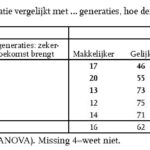PVV Blog 2 ~ The Evil French Revolution Has Made Islam Even More Evil
No Comments yet 01-08-2024 ~ Liberty, Equality and Fraternity
01-08-2024 ~ Liberty, Equality and Fraternity
Our democracy is indebted to the slogan of the French Revolution ‘Liberty, Equality and Fraternity’, but Party for Freedom leader Geert Wilders rejects the same French revolution.
He even draws a remarkably negative connection between the French Revolution and the world of Islam. What is the common thread behind this connection?
The bloodthirsty history of Islam
In his book Marked for Death. Islam’s War Against the West and Me Wilders describes parts of the history of Islam, based on his view that Islam is an aggressive totalitarian ideology and not a religion. Wilders deals extensively in descriptions of Muslim’ wars of conquest, the genocides they allegedly committed and the slave system they maintained. He also discusses the position of dhimmis, who are usually Jews and Christians, and who have a separate civil status within Islam, with fewer rights than Muslims. Nowhere does Wilders mention a positive aspect of Islam. Islam experienced a period of prosperity and growth from the beginning of its origins in the seventh century but fell into a subordinate position with the rise of Europe as the most powerful continent in the world from around the seventeenth century onwards.
The French Revolution inspires the Muslims
An interesting turning point in Wilders’ description of the alleged violent history and nature of Islam is the following. While in his book he discusses the emerging European supremacy over the world in the seventeenth century and beyond, with Islamic countries falling into the hands of Britain (such as Pakistan), France (Algeria), Italy (Libya), Spain (Spanish Sahara) and the Netherlands (Dutch East Indies), Wilders comes to the following insights: ‘when all seemed lost… Allah saved Islam, orchestrating what in Islamic eyes must look like two miraculous events: the outbreak of the French Revolution and the West’s development of an unquenchable thirst for oil’ (p. 112). Paradoxically, Allah was the driving force behind the French Revolution. In Wilders’ words, this is the same revolution that ‘revamped Islam at a crucial moment when its resourceswere diminishing due to its lack of innovation, the decline of its dhimmi population (i.e., Jews and Christians), and dwindling influxes of new slaves’ (p. 113)’.
Muslims cannot do it alone
Wilders’ reasoning is that Islam in itself stimulates neither development nor creativity. It depends on dhimmis and slaves to live and survive. Now that dhimmis and slaves had been exploited to the bone at the end of the eighteenth century, Islam needed new resources and innovations: the French Revolution provided this. After all, according to Wilders, one of the dogmas of the French revolutionaries was the complete submission of the entire people to the all-powerful state. The French showed the Muslims how they were able to subjugate their own people and virtually all European nations on the continent (at his height, Napoleon controlled large parts of the European continent; JJdR) to the principles of their ideology. It rang a bell and stimulated Muslims to become aware of their glorious past again, or in the words of Wilders: ‘In a sense, Islam encountered a “kindred soul” in Western totalitarian revolutionary thinking’ (p. 113). The line of reasoning is complex. Wilders is convinced of the aggressive character of Islam. Islam had somehow, paradoxically, and against its nature, fallen asleep in the centuries leading up to the French Revolution. God saved Islam by, again paradoxically, allowing the anti religious French Revolution to happen. When the French came to Egypt in 1798, they made the lethargic Muslims remember their glorious past.
Feeling inspired again, they rose to try to restore their once so beautiful empire.
Revolutionary France, the Soviet Union and Nazi Germany: it’s a mess
Wilders rejects the French Revolution. In his book he blames Enlightenment thinking for the totalitarian character of the French Revolution. The French Revolution may have given rise to the Declaration of the Rights of Man and the Citizen, the basis of the current Charter of the United Nations, but Wilders still condemns it for its alleged totalitarian character, which culminated in the terror of the guillotine under Robespierre’s reign of terror. He calls Revolutionary France an ‘ideocratic state’ and groups it together with other ‘ideocratic’ states: ‘… such states –whether revolutionary France, the Soviet Union or Nazi Germany – exterminated their perceived enemies with guillotines, gulags and gas chambers’ (p. 32). Not a word in his book about the United Nations Universal Declaration of Human Rights, or about the principle of human equality, which were also the fruits of this revolution.
Evil encourages evil
The French Revolution was nothing if not evil, and it is this evil that has awakened that other sleeping evil. ‘Islam began from the nineteenth century onward parroting Western
revolutionary jargon, adopting Western technological and scientific innovations, and embracing the belated industrial revolution that Western colonial administration was
bringing to the Islamic world – all with the goal of advancing jihad and world domination’ (p.114). This again sounds like a paradox for a religion that developed independently for the first 1200 years, but apparently that situation had changed. The key question for Wilders is that ‘exposure to Islam is ultimately fatal to us, but for Islam, contact with the West is a vital lifeline. Without the West, Islam cannot survive’ (p. 116). It is a deeply melancholy look at a religion that also produced the Taj Mahal and the Alhambra.
Cut the tires and let them die
Wilders’ view that the West is essential for Islam gives the same West an unexpected dominant position over Islam. If a country wants to get rid of its Muslims, all it has to do is cut ties with the community. The community then dies off automatically. How this should be done is of course a big question, but it will not be a pleasant operation. Cutting ties with Muslims will certainly not become a goal of the new Dutch government under Party for Freedom leadership, currently under construction, the other future coalition parties will not accept that, but it is my belief that it will remain an important ideological driving force in everything the new government will decide: How will measures and legislation in any area, but especially culture and education, ensure that the role of Islam and Muslims in the Netherlands is reduced? The anti-Islam ideology is in the DNA of the Party for Freedom and we will see it surface sooner or later.
Previous posts:
https://rozenbergquarterly.com/pvv-blog-introduction-the-dutch-party-for-freedom-an-analysis-of-geert-wilders-thinking-on-islam/
https://rozenbergquarterly.com/pvv-blog-1-geert-wilders-islam-is-not-a-religion-it-is-a-totalitarian-ideology/
You May Also Like
Comments
Leave a Reply







